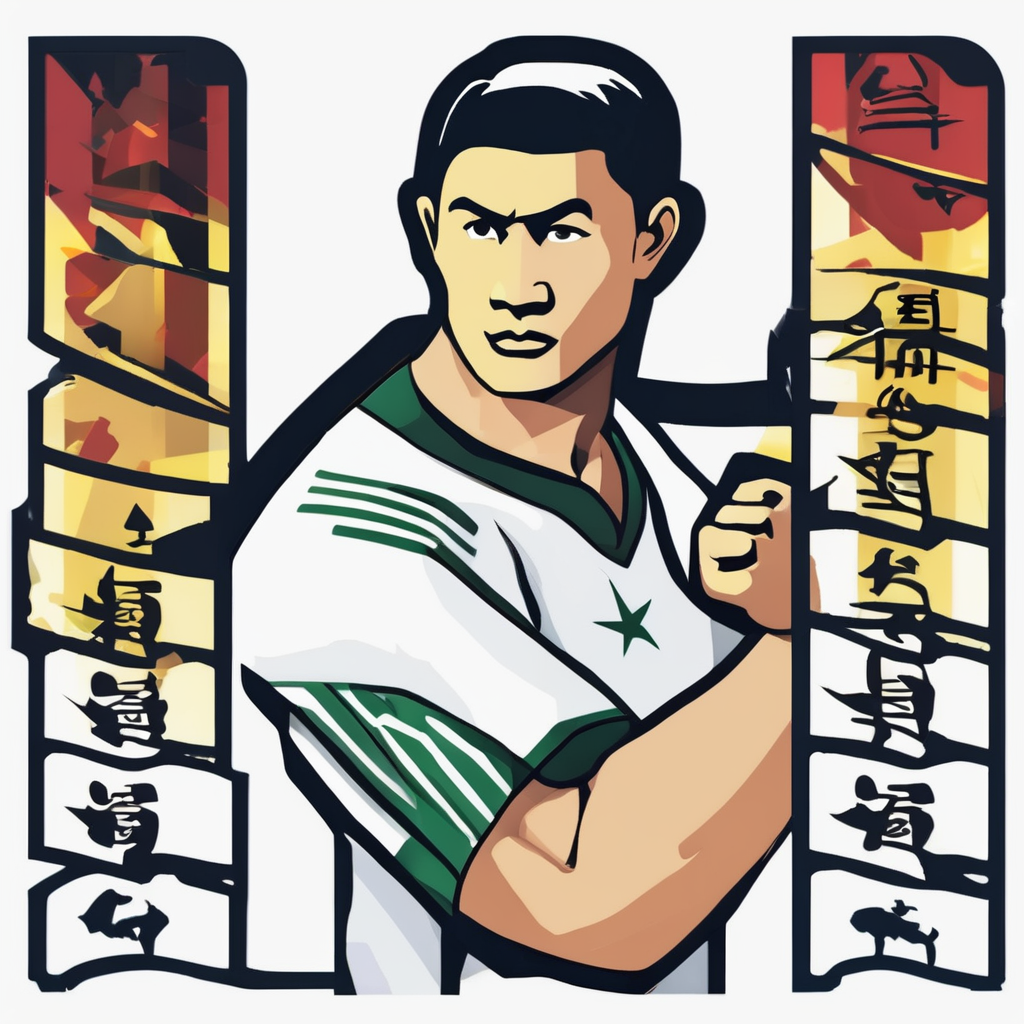Importance of Post-Fight Recovery for Muay Thai Fighters
Post-fight recovery is a vital element in maintaining and improving a fighter’s performance. When Muay Thai fighters engage in bouts, they encounter both physical and mental challenges that require careful management. Proper recovery ensures they can bounce back stronger, boosting long-term results.
Physically, fighters often experience muscle soreness, fatigue, and injuries. Addressing these through effective recovery not only alleviates pain but also prepares the athlete for future training sessions and fights. Incorporating these strategies as part of the regular training regimen is essential for long-term athletic progress.
Topic to read : Unlocking Defense: Cutting-Edge Shadowboxing Tactics for UK Kickboxers
Mentally, post-fight recovery supports Muay Thai resilience by helping fighters cope with the pressures and psychological stress associated with competing. Developing a consistent recovery routine enhances overall performance, allowing athletes to maintain focus and determination in their sport.
Having a structured recovery plan is crucial. It ensures that fighters can systematically approach both immediate and long-term challenges post-fight. This forward-thinking approach not only caters to their physical rehabilitation needs but also fosters psychological resilience, ensuring sustained success in the demanding world of Muay Thai.
Also read : Unlock Peak Performance: Top Strategies for UK Combat Sports Athletes to Conquer Stress and Mental Fatigue
Actionable Recovery Techniques
Incorporating specific recovery techniques into a Muay Thai fighter’s regimen is essential for sustaining performance and health. These techniques aid in physical rehabilitation and muscular recovery, addressing the impact of intense bouts.
Active Recovery Methods
Active recovery involves light exercises that promote blood circulation without putting undue strain on the body. Activities such as swimming, cycling, or low-intensity shadowboxing can ease muscle soreness and support recovery.
Stretching and Mobility Work
Stretching enhances flexibility and reduces stiffness, vital for post-fight recovery. Incorporating dynamic stretches before a fight and static stretches after helps maintain a range of motion and prevent injuries. Regular yoga sessions can provide a structured approach to improving mobility.
Cold and Heat Therapy
Applying cold and heat therapy effectively manages pain and swelling. Cold compresses help reduce inflammation post-fight, while heat application can soothe tense muscles. Guidelines suggest alternating between them for optimal results. Cold therapy is best immediately after a fight, whereas heat therapy suits ongoing muscular recovery.
Nutrition for Optimal Recovery
Optimal nutrition strategies play a crucial role in post-fight recovery, supporting both physical rehabilitation and muscle recovery for Muay Thai fighters. By focusing on a tailored recovery diet, fighters can enhance their performance and resilience.
Essential Nutrients Post-Fight
Protein, carbohydrates, and healthy fats are key macronutrients that aid in muscle repair and energy replenishment. Including lean proteins like chicken or tofu, complex carbohydrates such as brown rice, and sources of healthy fats like avocados can be beneficial. These nutrients provide the energy and materials needed for muscular recovery.
Hydration Practices
Adequate hydration is essential for effective recovery. Drinking water alone may not be enough; replenishing electrolytes is vital to maintain balance and promote recovery. Incorporating drinks high in electrolytes, or coconut water, can enhance hydration practices post-fight.
Meal Timing and Planning
Timing of meals can affect recovery outcomes. Consuming protein-rich meals or snacks, like a smoothie with protein powder, within the first hour post-fight maximises recovery benefits. Strategic meal planning ensures fighters receive consistent, nourishing fuel, supporting ongoing recovery and readiness for subsequent training sessions or fights.
By focusing on these nutrition strategies, fighters can improve their post-fight recovery and, in turn, their overall performance.
Mental Recovery Practices
Mental recovery is as crucial as the physical aspect for Muay Thai fighters, fostering psychological resilience. Post-fight, athletes might encounter stress and pressure impacting their focus and performance. Engaging in mindfulness techniques can alleviate stress and enhance mental well-being.
Meditation and Relaxation Techniques
Practices like meditation and deep breathing are effective in quieting the mind and promoting relaxation. These techniques help fighters manage stress by grounding themselves in the present and improving concentration.
Visualization for Performance Enhancement
Visualization involves mentally rehearsing fights, envisioning successful moves and scenarios. This technique enhances focus and confidence, enabling athletes to approach bouts with a clear, steadfast mindset.
Support Systems and Counseling
Accessing mental health support through counseling offers valuable coping mechanisms. Dedicated support systems foster a secure environment where fighters can discuss challenges and work towards solutions. This collective mental support is vital in building resilience and encouraging personal growth.
Prioritising mental recovery fosters a holistic approach to post-fight healing, ensuring fighters are mentally prepared for upcoming challenges. Integrating these practices into regular training routines reinforces psychological strength, essential for sustained success in the martial arts arena.
Testimonials from UK Muay Thai Fighters
In the world of Muay Thai, firsthand fighter experiences provide invaluable insights into recovery processes. Understanding these personal journeys can inspire and guide others facing similar challenges.
Case Study 1: Successful Recovery Story
In this case, a UK fighter shared how dedicated mental and physical recovery techniques propelled them back to peak performance post-injury. They emphasized the role of structured routines, highlighting activities like yoga and mindfulness practices in regaining strength and focus.
Case Study 2: Overcoming Injuries
Another athlete discussed overcoming significant injuries through effective post-fight recovery methods. They credited their comeback to a well-planned recovery regimen involving tailored physiotherapy sessions and gradual strengthening exercises. This structured plan was pivotal in regaining full range of motion and confidence in the ring.
General Insights from the Community
The Muay Thai community offers numerous lessons in resilience. Common themes include the importance of patience, disciplined training, and the support of professional health resources. These collective experiences underline the value of recovery insights in fostering a supportive environment where fighters are encouraged to share strategies and recommendations, fortifying the community.
By analysing these journeys, we gain a deeper appreciation for the significance of structured recovery in achieving sustained success.
Expert Advice on Injury Prevention
Injury prevention is pivotal in sustaining a successful Muay Thai career. It involves implementing strategic practices within the training regimen to avoid setbacks and enhance overall longevity. Below, practical expert recommendations for minimizing risk and boosting training safety are explored.
Importance of Proper Warm-Up and Cool-Down
Executing a proper warm-up routine is crucial for preparing the body. It increases blood flow, enhances flexibility, and reduces injury risk. Cool-down exercises help transition the body to a resting state, aiding in the prevention of muscle stiffness and soreness.
Techniques for Avoiding Common Injuries
Emphasizing techniques specific to Muay Thai can significantly aid in injury prevention. Practising correct form, using protective gear, and gradually increasing training intensity are effective strategies. Preventive measures should be tailored to individual needs and fight demands.
Role of Physiotherapy in Recovery
Physiotherapy plays a vital role in facilitating physical rehabilitation and proactively managing potential injuries. Regular sessions with skilled physiotherapists can address strain points, enhance mobility, and support muscular recovery. Seek professional rehabilitation support when experiencing persistent pain or limited motion to ensure swift recovery and optimal performance.
Local Resources for Post-Fight Recovery
In the UK, Muay Thai fighters can access valuable local resources for post-fight recovery. These cater specifically to the unique demands of the sport and help maintain enhanced performance and foster Muay Thai resilience.
List of Recommended Physiotherapists
Several UK-based physiotherapists specialise in physical rehabilitation for athletes. They offer tailored programs focusing on muscular recovery and injury prevention. Look for professionals experienced with combat sports to ensure you receive the best care.
Wellness Centers Catering to Fighters
Across the UK, many wellness centers cater specifically to the needs of Muay Thai athletes. These facilities offer comprehensive services, including massage therapy, nutrition advice, and mental health support. They provide holistic recovery solutions, ensuring fighters receive both physical and psychological care.
Online Support Networks
Connecting with an online support network can foster a sense of community among fighters. Platforms are available to share recovery insights, discuss challenges, and exchange recovery techniques. Engaging with peers provides encouragement and introduces new strategies that can be incorporated into personal routines.
Utilizing these local resources aids in navigating the hurdles post-fight, enhancing both immediate recovery and long-term performance. These facilities and networks are instrumental in building Muay Thai resilience.
The Overall Significance of Recovery in Muay Thai Training
Muay Thai is not just about power and agility; it’s about how well fighters navigate the rigorous demands their bodies endure. Effective recovery procedures are vital in ensuring prolonged athletic success. Neglecting recovery could lead to chronic injuries and performance dips. Thus, integrating a well-structured recovery plan is essential.
Recovery serves as a foundation for long-term performance. By embracing techniques that target both physical and mental needs, fighters can sustain their craft, fostering training sustainability. It’s about giving the body the restorative attention it deserves; through muscular repair and mental fortification.
Encouraging a culture centered on recovery among fighters can foster shared experiences and insights, promoting a supportive community. Fighters can share strategies, thereby embedding recovery as a critical part of the training regimen. This cultural shift ensures the longevity of an athlete’s career.
By acknowledging the paramount role of recovery in Muay Thai, athletes and coaches alike can inspire healthier and more effective training environments. Encouraging recovery leads to enhanced performance while securing the future of athletes through preventive measures and holistic care.

